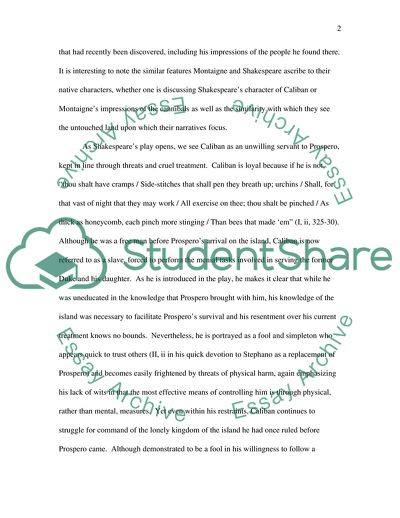Cite this document
(William Shakespeares The Tempest and Montaignes On Cannibals Essay Example | Topics and Well Written Essays - 1500 words, n.d.)
William Shakespeares The Tempest and Montaignes On Cannibals Essay Example | Topics and Well Written Essays - 1500 words. https://studentshare.org/literature/1708559-the-tempest-shakespeare
William Shakespeares The Tempest and Montaignes On Cannibals Essay Example | Topics and Well Written Essays - 1500 words. https://studentshare.org/literature/1708559-the-tempest-shakespeare
(William Shakespeares The Tempest and Montaignes On Cannibals Essay Example | Topics and Well Written Essays - 1500 Words)
William Shakespeares The Tempest and Montaignes On Cannibals Essay Example | Topics and Well Written Essays - 1500 Words. https://studentshare.org/literature/1708559-the-tempest-shakespeare.
William Shakespeares The Tempest and Montaignes On Cannibals Essay Example | Topics and Well Written Essays - 1500 Words. https://studentshare.org/literature/1708559-the-tempest-shakespeare.
“William Shakespeares The Tempest and Montaignes On Cannibals Essay Example | Topics and Well Written Essays - 1500 Words”. https://studentshare.org/literature/1708559-the-tempest-shakespeare.


